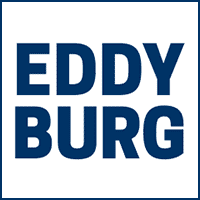

It is easy to say one should not stay with Saddam. He is one of the worst products of the inauspicious combination between the age-long stagnation of Middle Eastern civilizations and the rapacious and short-sighted interests of the West. Those who protested yesterday, when Saddam was an instrument of the West, against the massacres of Kurds, communists and other opponents, can easily say it today. There is therefore nothing to object to the first “not”.
Millions of people (in Europe and in the three Americas, in Asia, in Africa and in Australia) have already said they arenot with Bush: they have marched to oppose Bush’s war and to reject the policy of the US ruling class. The Pope, John Paul II, is saying every week, almost every day, that he is not with Bush. The Italian President, who is the highest representative of the nation, says the same thing. Members of the left wing and centre parties, sharply criticizing the Prime Minister for his tepidness and for his concealed servilism to Bush have said the same thing.
Many of us have said that, while not supporting Saddam, we don’t support Bush either. Where is the scandal? Isn’t saying “not with Bush, nor with Saddam” just saying the simple truth? Why shouldn’t one say such a simple truth?
In general, there are three possible reasons for not saying the truth: ignorance, fear or interest. It is difficult to ascribe ignorance to the members of Parliament, the political leaders, the journalists and the other clerks who have reproached Epifani for his phrase. It is even harder to believe that they can be moved by fear: fear of what, of whom? The CIA has proven not to be very dreadful.
The only reason that is left is interest. But what kind interest has pushed to clouding, to hiding the truth? Certainly it is not an economic interest: we are talking about respected politicians, not about gun merchants or firms for post-war reconstruction. Nor is it a “humanitarian” interest: I don’t believe that the death of an American or of an English soldier could seem to these respected politicians more horrible than the death of an Iraqi soldier. I fear it is only a trivial, petty political interest, an interest of electoral accounting. I fear it is only the concern of losing a few moderate voters. Voters who would have preferred to obtain the UN’s blessing for Bush’s and Blair’s troops, but who have anyway decided to (metaphorically) wear the helmet and to side with the “defenders” of the West, since Bush has taken action.
The policy sustained by Bush and Blair is leading to the suicide of the West: a moral suicide, because the values of justice and truth, which are the base of our civilization, have been trampled on; a strategic suicide, because an inevitable wave of hate towards all of us has been unleashed; a political suicide, because the international institutions, built with difficulty on the ruins of the world ravaged by Nazi-fascism, have been destroyed. The real scandal is that these petty political interests should cover words of truth.
Post scriptum
On January 26, 1998, years before the destruction of the Twin Towers and the proclamation of the horrible theory of preventive war, the PNAC – Project for the New American Century, a US pression group – wrote a letter to President Clinton prompting for a “strategy for removing Saddam’s regime from power,” even with the military. Among those who subscribed the letter are some of the most influential members of the US administration: Dick Cheney, Vice President; Lewis Libby, Cheney’s Chief of Staff; Donald Rumsfeld, Secretary of Defense; Paul Wolfowitz, Deputy Secretary of Defense Peter Rodman, “global security” advisor; John Bolton, Under Secretary of Arms Control and International Security; Richard Armitage, Deputy Secretary of State; Richard Perle, chairman of the Defense Policy Board; William Bristol, chairman of PNAC and Zalmay Khalilzad, Presidential Envoy to the Iraqi Opposition.